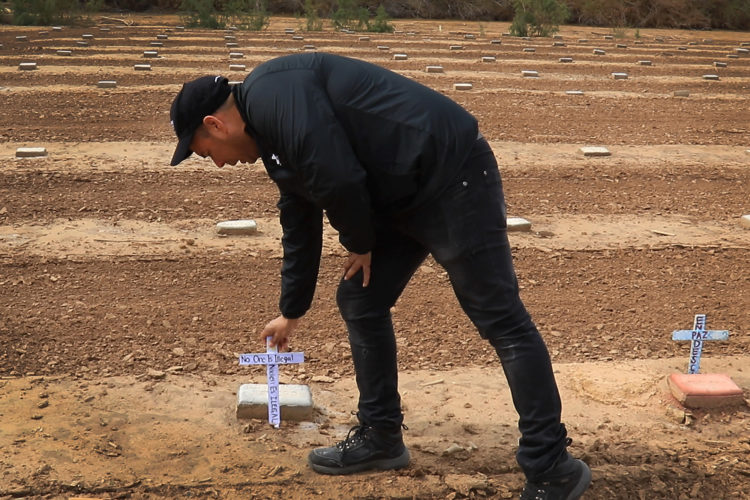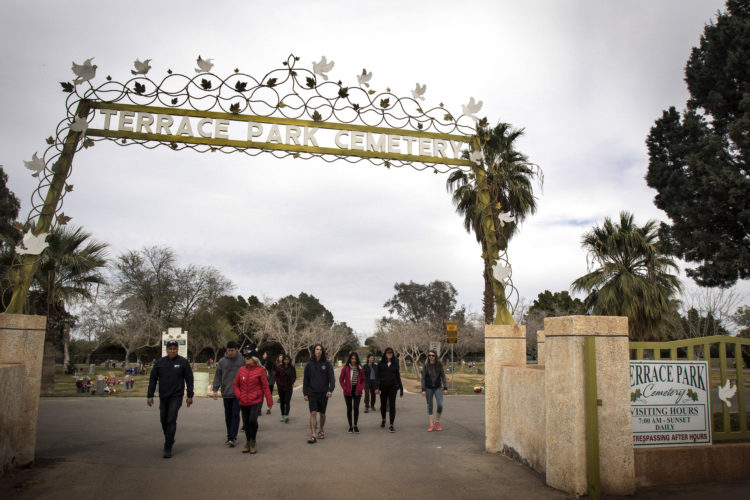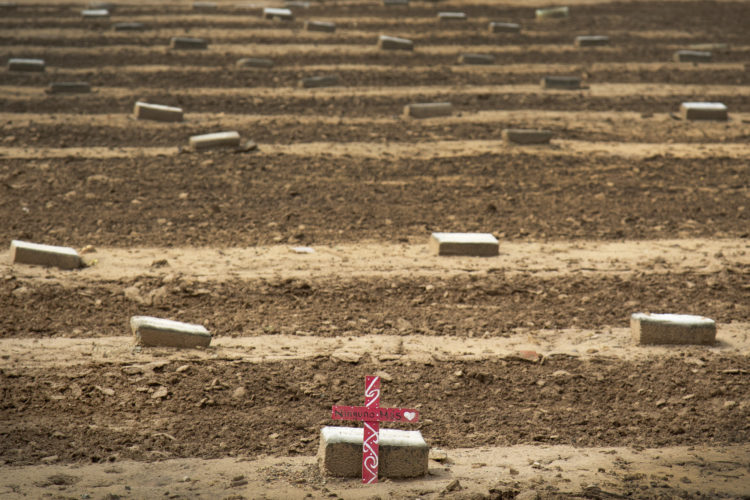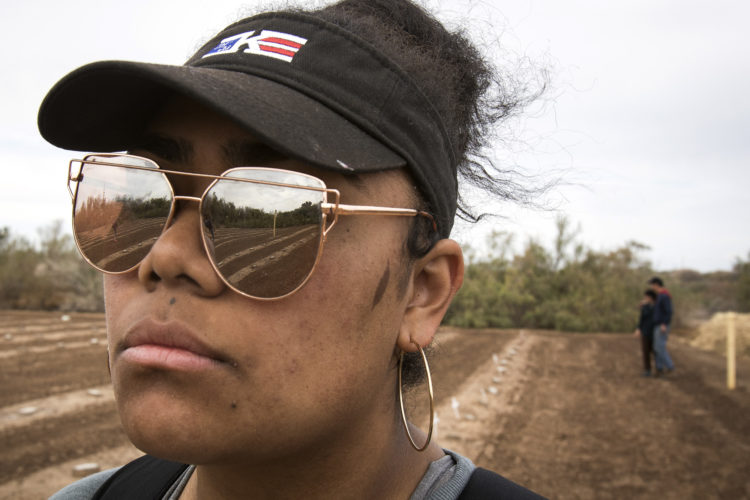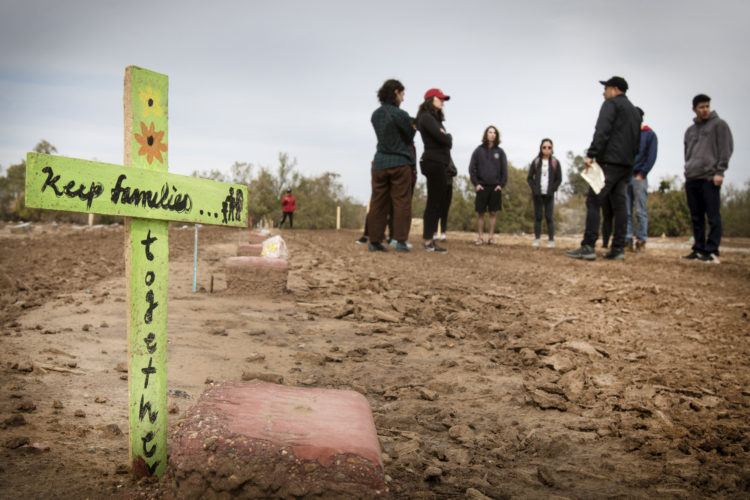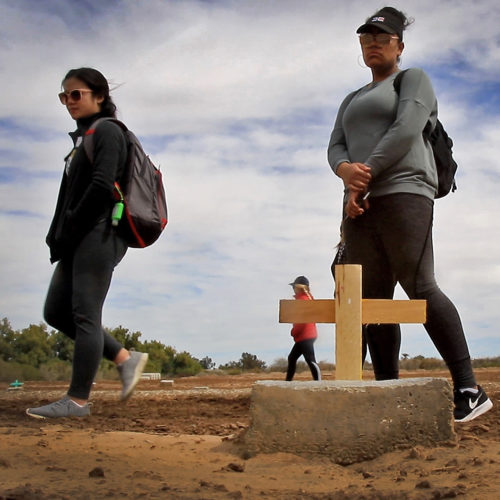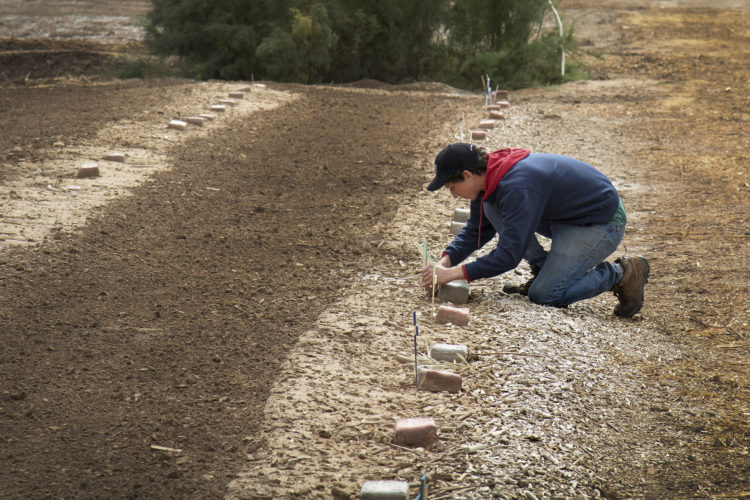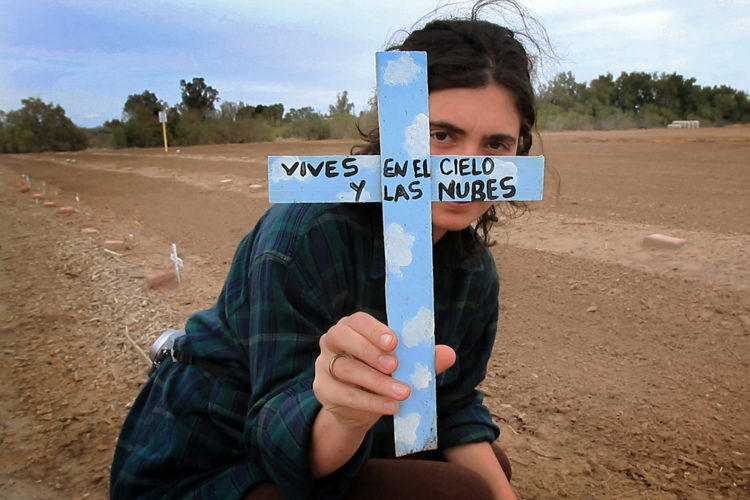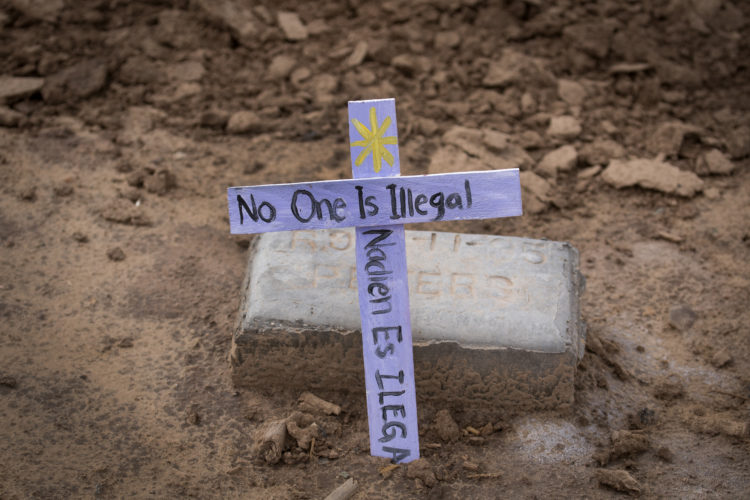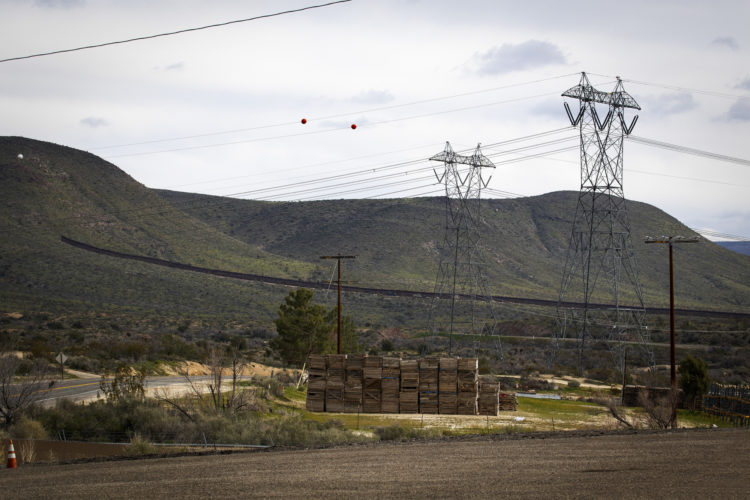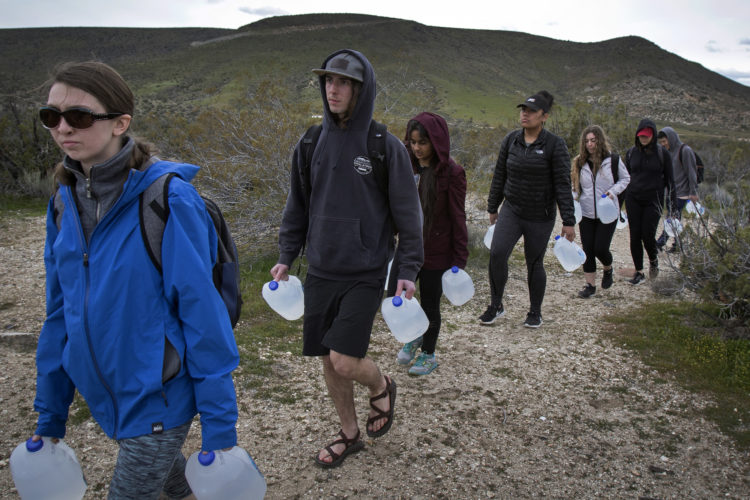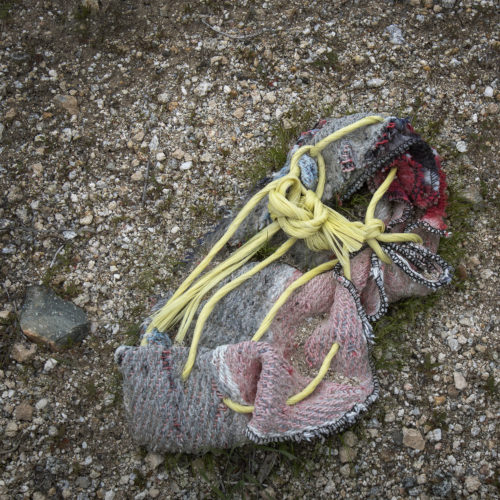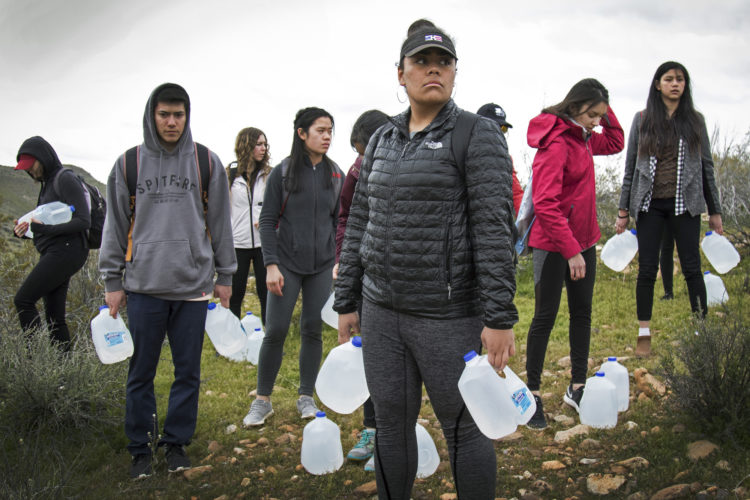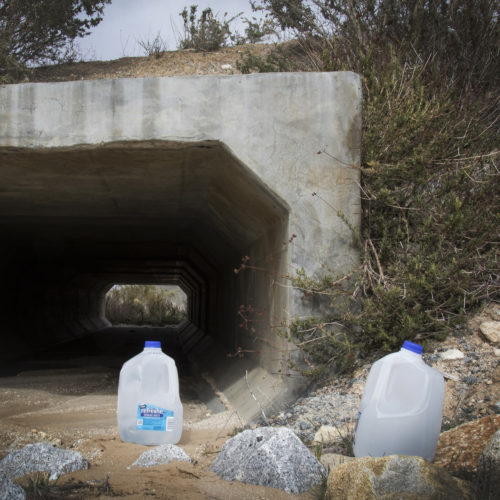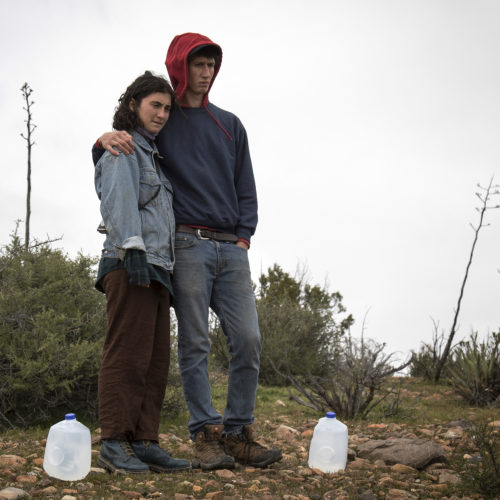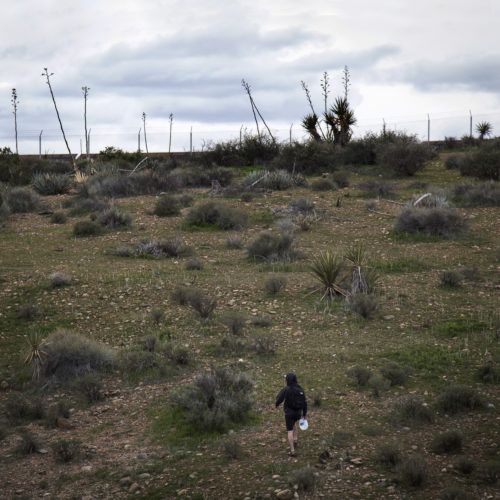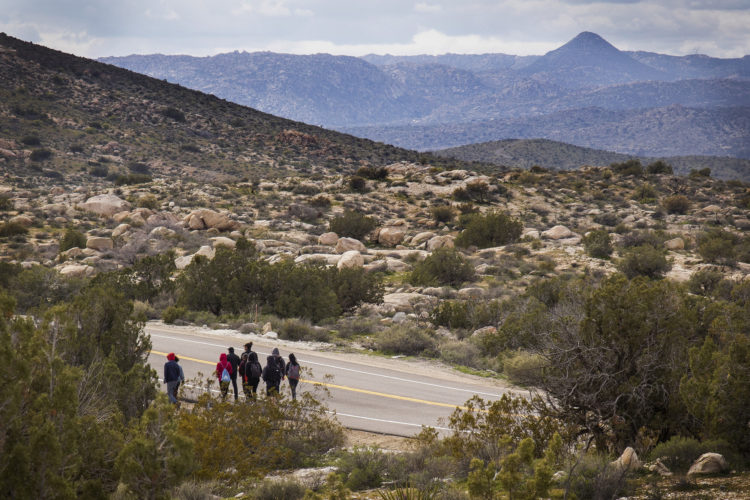Angels at the Border
Volunteer Groups Offer Much Needed Assistance | 2018
Go to Photo GalleryAt the Tijuana-San Diego border, there are dozens of Non-profit organizations (NGOs), global grassroots organizations, and ad-hoc volunteers that provide immigrant families and refugees with assistance. These agencies help ease the pressures on host countries by providing humanitarian aid, comfort, and friendship.
Border Angels is one of them. Also known as Angeles De La Frontera, the San Diego-based organization serves the immigrant population through various migrant outreach programs. Founded in 1986 by former Major League Baseball executive Enrique Morones, the non-profit focuses on human rights, immigration reform, and the prevention of immigrant deaths along the border. Border Angels operates on a grassroots level and has more than 2,000 volunteers nationwide with chapters in six states and Mexico.
With the influx of migrants from the caravans from Central America, combined with stricter policies towards migrants by the Trump Administration, and the backlogging of asylum hearings, Tijuana is teeming with migrants seeking entry into the United States. In June 2019, Mexican officials said they expect to see as many as 100,000 asylum seekers from Honduras, El Salvador, and Guatemala this year. The shelters in Tijuana are overflowing with men, women, and children who are in desperate need of clothing, food, water, and hygiene products, and resources are thin.
Although pro-immigrant groups like Border Angels believe the U.S. should welcome migrants fleeing conflict in their homeland, or seeking better economic opportunities, immigration critics often counter that unauthorized immigrants should be barred because they do not follow U.S. laws, and they take resources away from tax-paying Americans citizens.
The Border Angels community center in Tijuana coordinates a Caravan of Love outreach mission each Saturday. Volunteers sign up on their website, then meet up at their Sherman Heights office where they bring supplies, load up their vehicles, and carpool over the border to Tijuana, visiting a handful of shelters. Hugo Castro leads the caravan to drop off clothes, shoes, and hygiene products; supplies that are in demand at shelters around the border city.
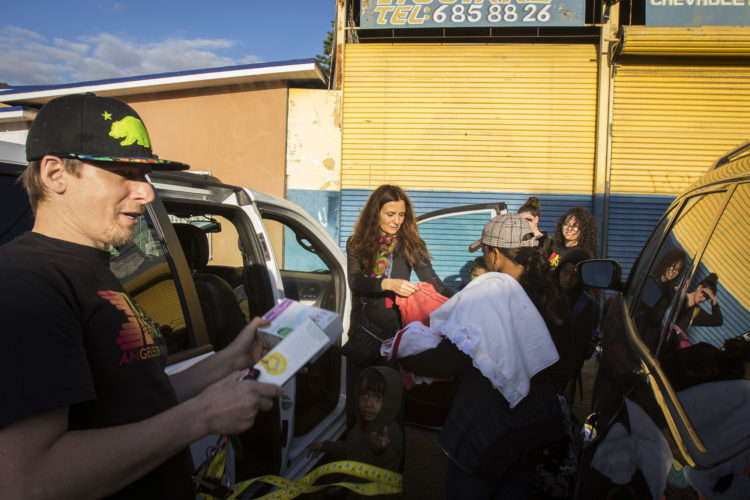
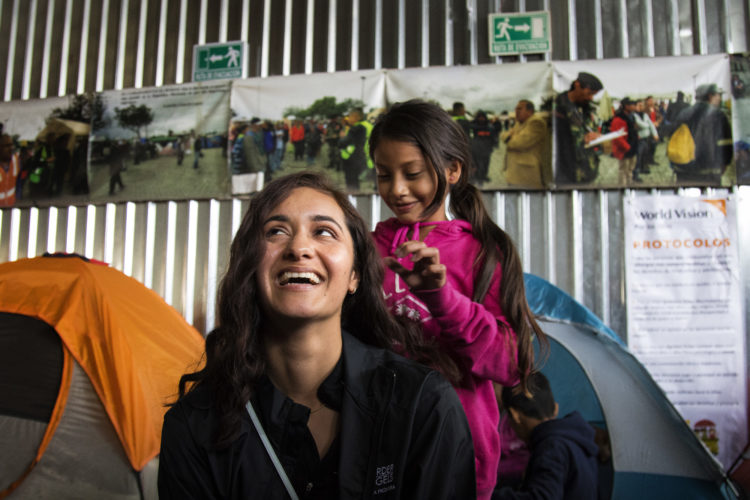
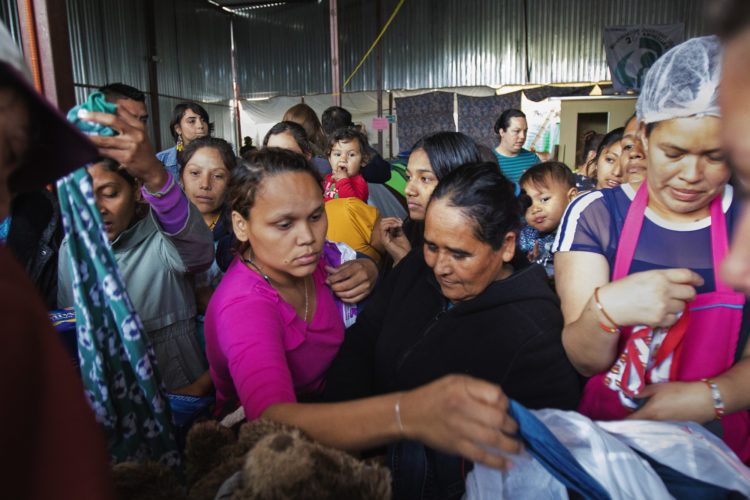
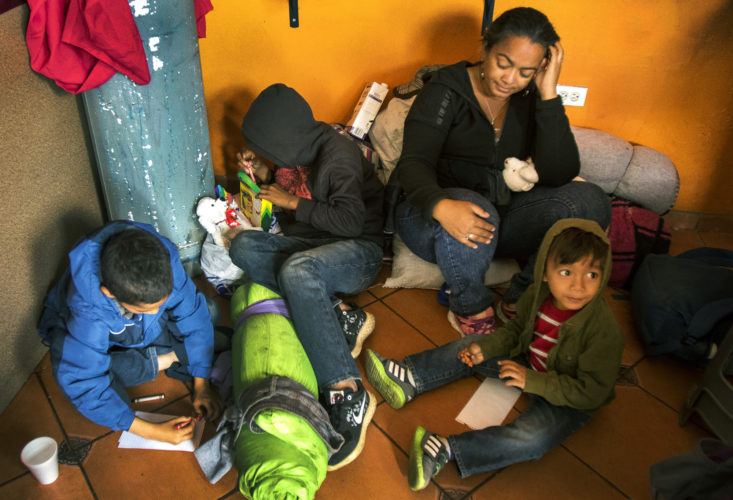
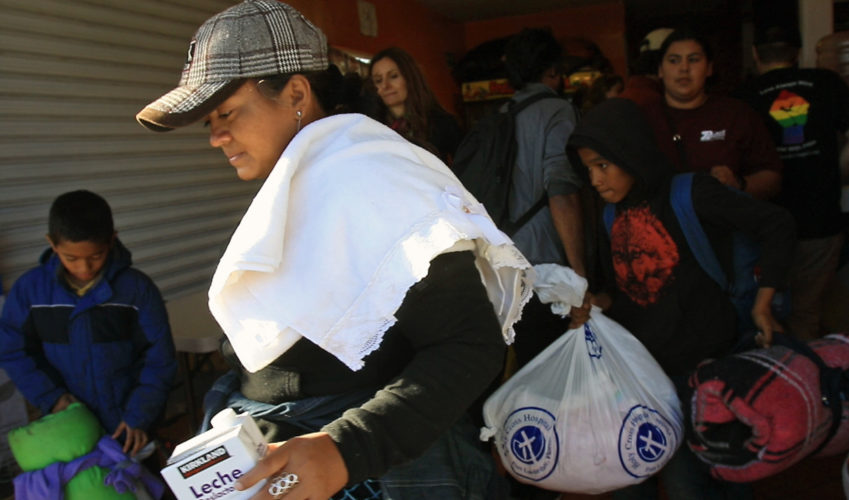
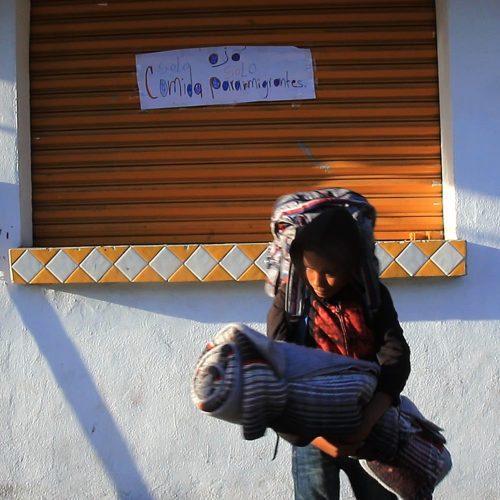
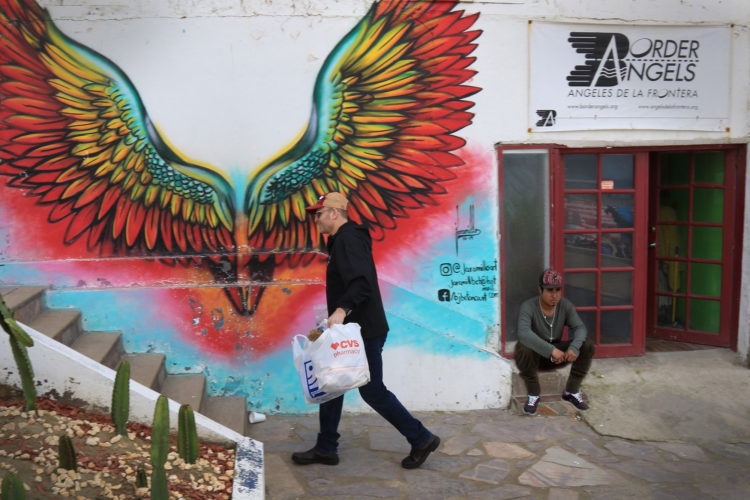
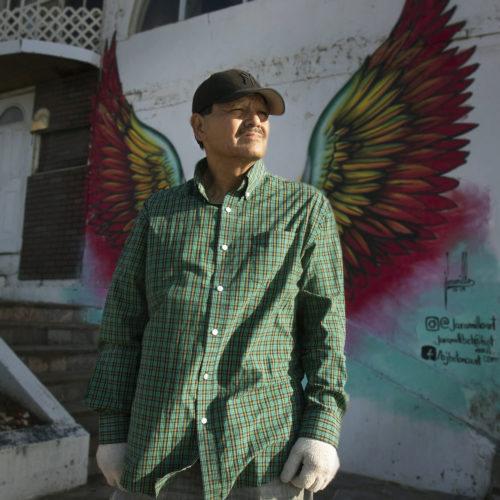
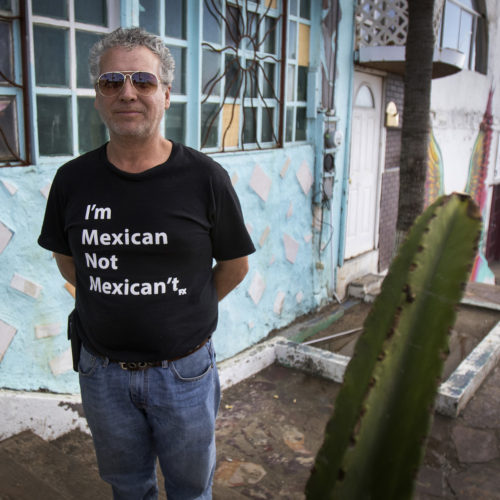
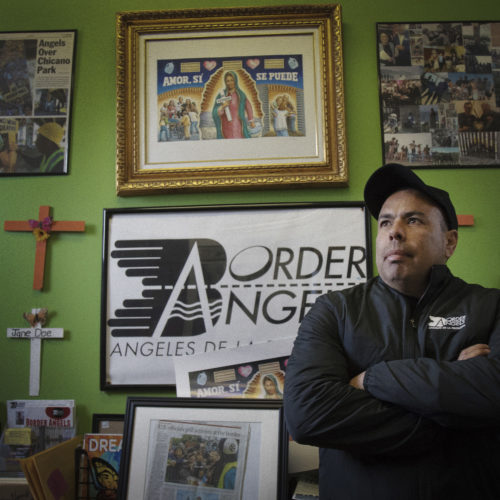
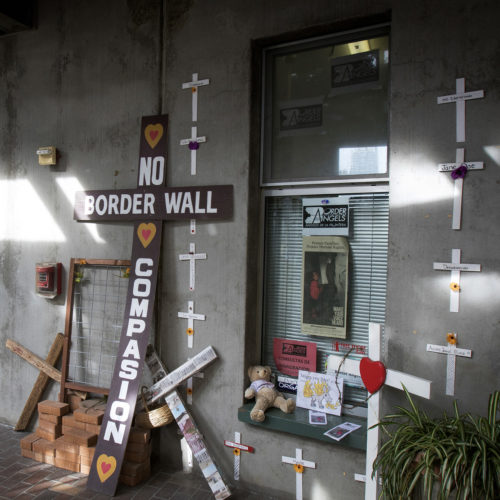
Water Drops and the Cemetery of the Forgotten
Holtville, CA
Castro also took a group of volunteers to the Cemetery of the Forgotten, a Potter’s Field for unidentified migrants located behind the Terrace Park Cemetery in rural Holtville, about 130 miles east of San Diego in the Imperial Valley. In an unmarked dirt lot behind the main cemetery, the remains of hundreds of migrants who died crossing the border are a stark reminder of the danger’s migrants face.
Visitors walked about the dirt field, some knelt and repositioned painted wooden crosses with spiritual messages that blew over in the wind. The signs, written in both English and Spanish, contained messages such as “keep families together” or ninguno más “not one more.” Castro and the volunteers recited a prayer together before leaving the cemetery in silence.
Cemetery of the Forgotten is one of the few known resting places in the U.S. for unidentified migrants who died while attempting to cross the U.S.-Mexico border illegally. Castro says many of the migrants either succumb to exposure to the extreme temperatures or from dehydration in the California desert while others may have drowned in drainage ditches or rivers. Roughly 250 unidentified individuals are buried in the 3-acre dirt lot, each grave is marked with a small stone inscribed with a row number and the words “John Doe” or “Jane Doe.” Castro says the unidentified migrants are buried here in anonymity, an extreme reflection of the often desperate attempts by people to enter the U.S.
Castro also takes volunteers on “water drops” to rural areas near the border where they scatter water containers under sagebrush and along trails that migrants typically use as an act of humanitarian aid. The conditions in the arid California desert are extreme; temperatures often dip into the twenties overnight and reach the upper nineties in the daytime. In the winter months, they leave other life-saving supplies, such as blankets, socks, and hand warmers.
The Border Angels organization has been leading these missions for over 20 -years, but, as political tensions over illegal immigration reach a pitch, the drops have become increasingly controversial. Morones says that by leaving water for the migrants, they are saving lives. More than 11,000 migrants have died in the desert since 1994, he says, and their leading cause of death is dehydration.
